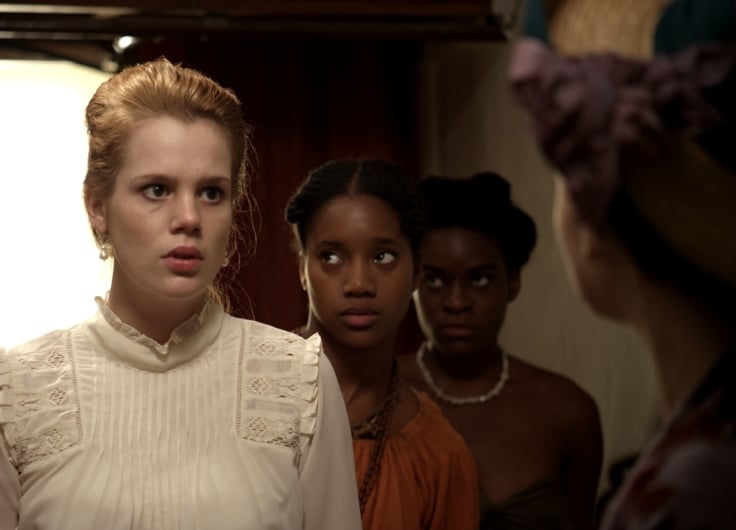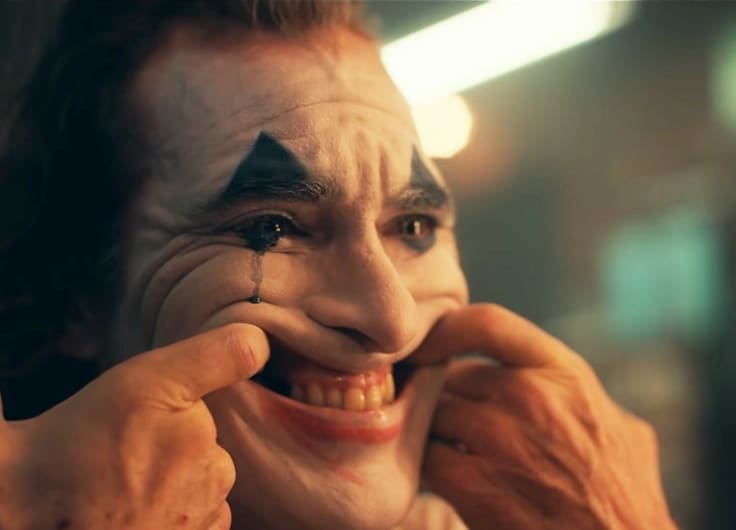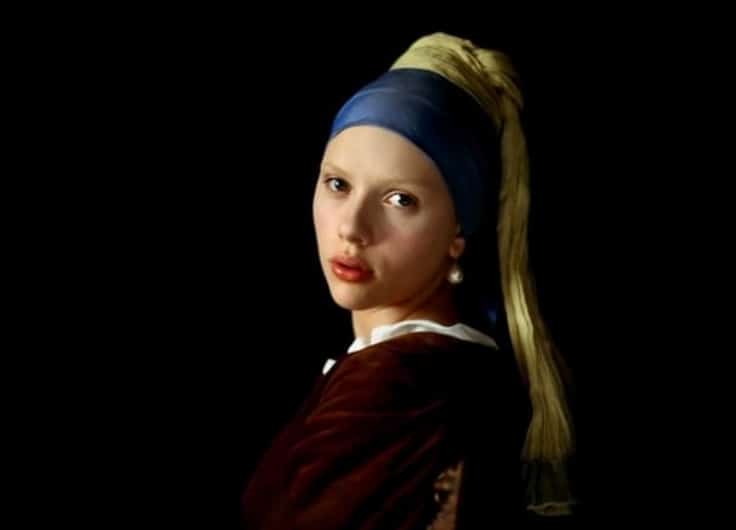The Belgian Films That Captivated Cannes
It wasn’t just that the films Close, The Eight Mountains and Tori and Lokita all received awards at the 2022 Cannes Film Festival. All three of them are also humane, authentic films about friendship, which try to speak the unspeakable through images.
The Belgian film representation for the 2022 edition of the Cannes Film Festival was surprising on two fronts. Firstly, no fewer than three Belgian feature films were selected for the 21 films in the main competition – an unparalleled number. And the fact that all three of them also received awards was the icing on the cake.
After the Flemish Lukas Dhont saw his feature film debut Girl
awarded with the Golden Camera at Cannes in 2018, his second feature, Close, now received the Grand Prix – the second most prestigious prize after the Golden Palm. Two-time Golden Palm winners Luc and Jean-Pierre Dardennes received the Anniversary Prize for Tori and Lokita, a prize specially created for the 75th edition of the festival. The Flemish film duo Felix Van Groeningen and Charlotte Vandermeersch were awarded the Jury Prize for The Eight Mountains, after the highly successful book of the same name by the Italian writer Paolo Cognetti.
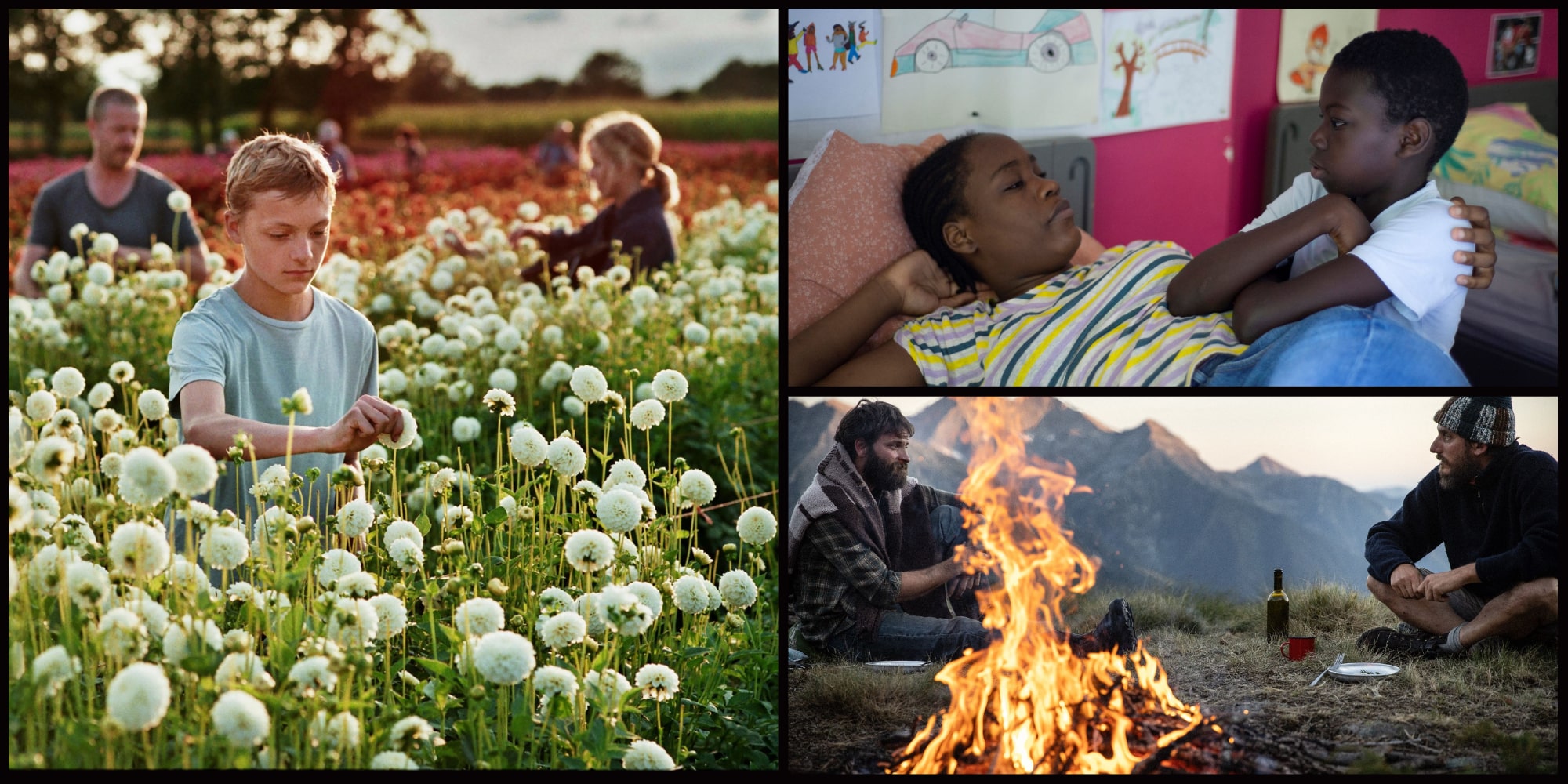 Close / Tori and Lokita / The Eight Mountains
Close / Tori and Lokita / The Eight MountainsAnd then there was a fourth Belgian title that premiered this year at Cannes, at a midnight screening – the virtuoso Rebel by two Flemish-Moroccan filmmakers Adil el Arbi and Bilall Fallah. This testosterone-fueled melodramatic jihad musical, with its boldly lyrical Hollywood style, and brightly coloured musical interludes splashing off the screen, contrasted sharply with the subdued realism of the three films in the main competition.
The ties of brotherhood
Remarkably, what all four films have in common is that they speak of friendship and brotherhood. Behind the scenes brotherhood and close friendship are central to the filmmakers too. In Tori and Lokita, the inseparable Dardennes brothers from Wallonia, who always make their films together, tell the story of two children from Benin who have made the crossing to Europe without their parents. As the children have no one else, they consider each other family. The extent to which this is actually true is irrelevant to them, but for the Belgian authorities it does matter. When they call Lokita to account during interrogations it’s only official proof of their relationship that counts.
Brotherhood is also central to Adil El Arbi and Bilall Fallah. The two Flemish filmmakers, who are simply referred to as Adil & Bilall, have been making genre films together since they became friends during their studies at the Brussels University of Applied Sciences and Arts. Their first short film was called Broeders (Brothers) (2011) and they directed the American buddy-action film Bad Boys for Life (2020) with Will Smith. Their Cannes debut Rebel is a virtuoso jihad musical about two brothers. Young man Kamal, a repeat criminal, leaves for Syria when he gets into hot water with the authorities in Brussels. Meanwhile, at home, his younger brother Nassim (played by El Arbi’s younger brother Amir) is being worked on by radical recruiters to follow in his brother’s footsteps.
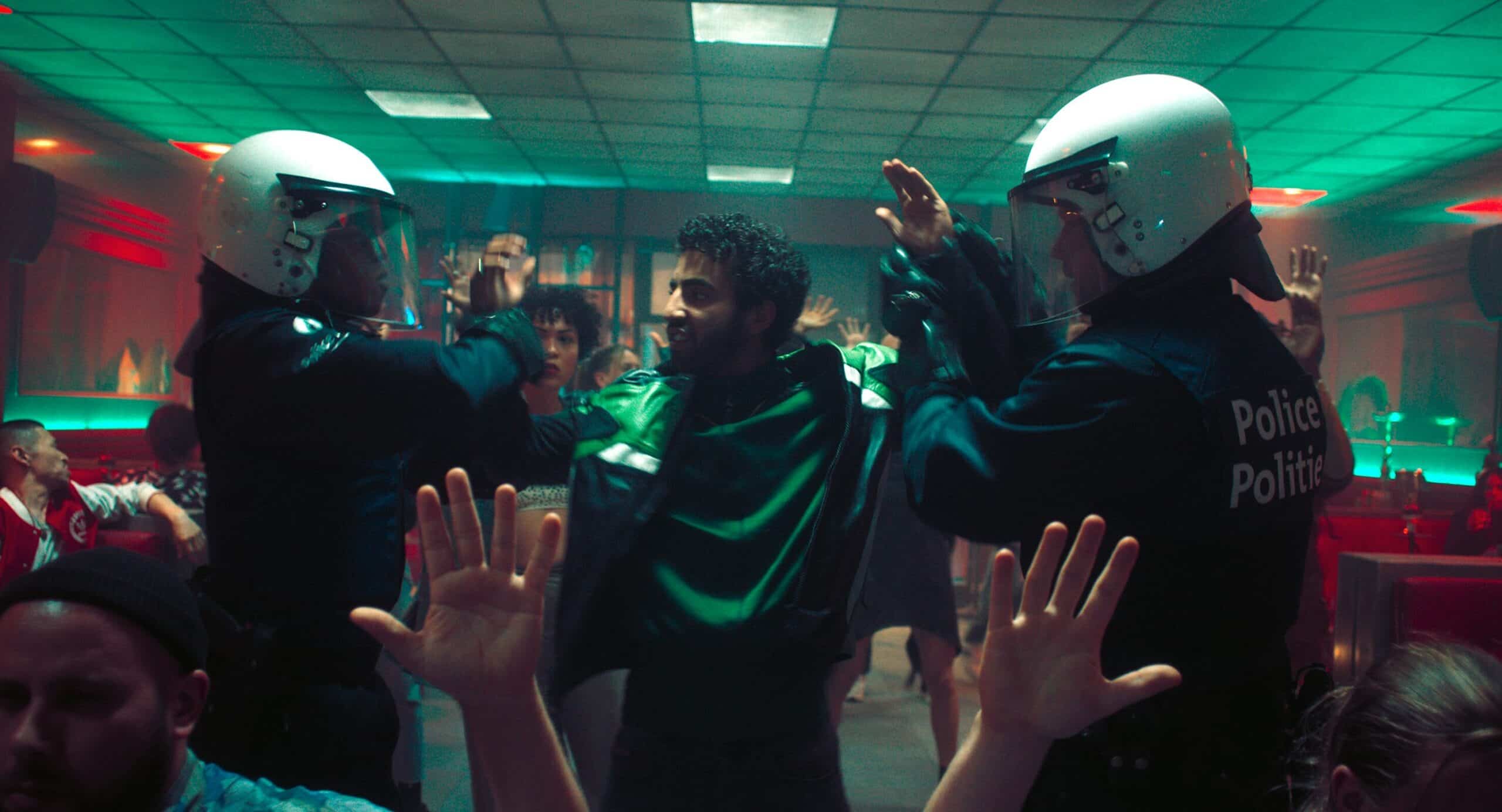 Rebel
RebelOriginally an actor, The Eight Mountains is Charlotte Vandermeersch’s directorial debut, together with her partner, the established director Felix Van Groeningen (The Broken Circle Breakdown, Beautiful Boy). He cycled naked across the Promenade de la Croisette in Cannes in 2009, when his film adaptation of Dimitri Verhulst’s The Misfortunates made the festival’s Directors’ Fortnight selection. His film Belgica (2016) was, similarly to The Eight Mountains, not only about brotherly love, but also about a lost dream – a music café in Ghent, run by two brothers, fails in the face of its own success.
Vandermeersch was very much a part of developing Belgica, and she played the wife of one of the brothers in the film. Vandermeersch and Van Groeningen made no secret of the fact that prior to making The Eight Mountains their relationship was on the rocks. They rediscovered each other through writing and directing together. The Eight Mountains is about the lifelong friendship between shy and thoughtful Pietro, the only child from a city apartment in Torino, and Bruno, a strapping farmer’s son from the unyielding mountains, and the last child from a village that is dying out.
Director Lukas Dhont in turn works closely with his younger brother Michiel, who produced Close. As children they had already divvied up the roles like this in their play. Since Close, they founded their own production house, which they named after the instrument that breathes new life into faded friendships: The Reunion. Their award-winning Cannes film Close is about 13-year-old soul mates Léo and Rémi, who hang out together all the time, and now start secondary school together. At school they are called sissies, and the self-evident nature of their friendship comes under pressure, with disastrous consequences. Close revolves around the taboo of intimacy and vulnerability in male relationships.
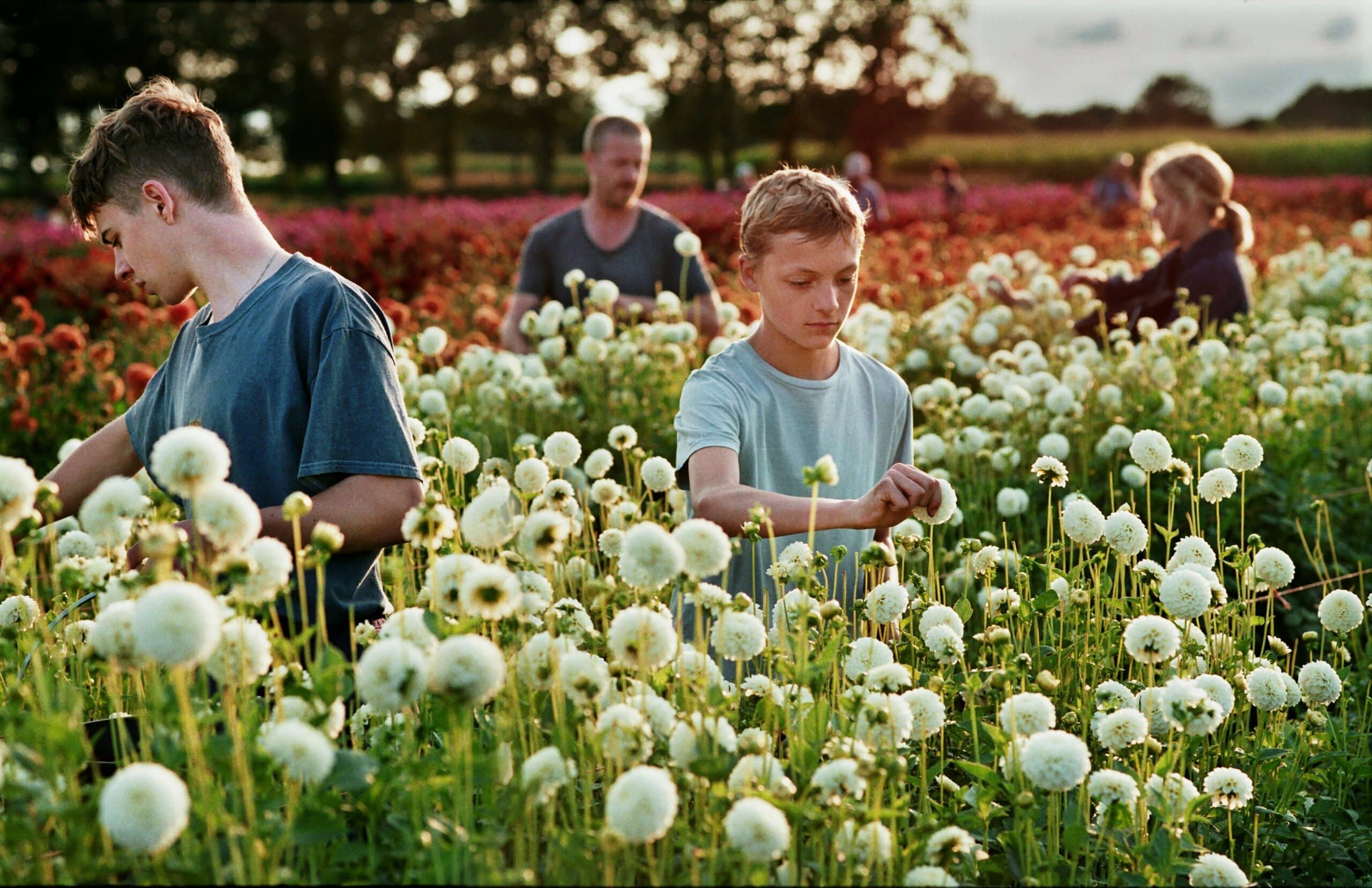 Close
CloseLost friendships
All of these films are also about destroyed friendships, and the absence of those friendships demonstrates just how elementary the idea of the soulmate is, and how devastating the consequences are if a bond like that – whether based on a shared childhood or a future dreamt together – is lost. Friendship, just like Léo says to Rémi in Close, is feeling special about each other. Or as Lokita points out, when Tori lovingly stems the blood from her head wound with his shirt, “there’s no one like you.” Lokita dreams of a residence permit so she can get an education and live together with Tori in their own apartment.
In The Eight Mountains, the loss of a friend equates to the amputation of a part of yourself. Rebel shows how IS corrupts and exploits bonds of brotherhood to turn them into the exact opposite – fratricide. Being friends means pulling together, being there for each other, knowing that someone knows you. Close, The Eight Mountains and Tori and Lokita are all humane films about connected individuals who suffer loss because of demands from the outside world.
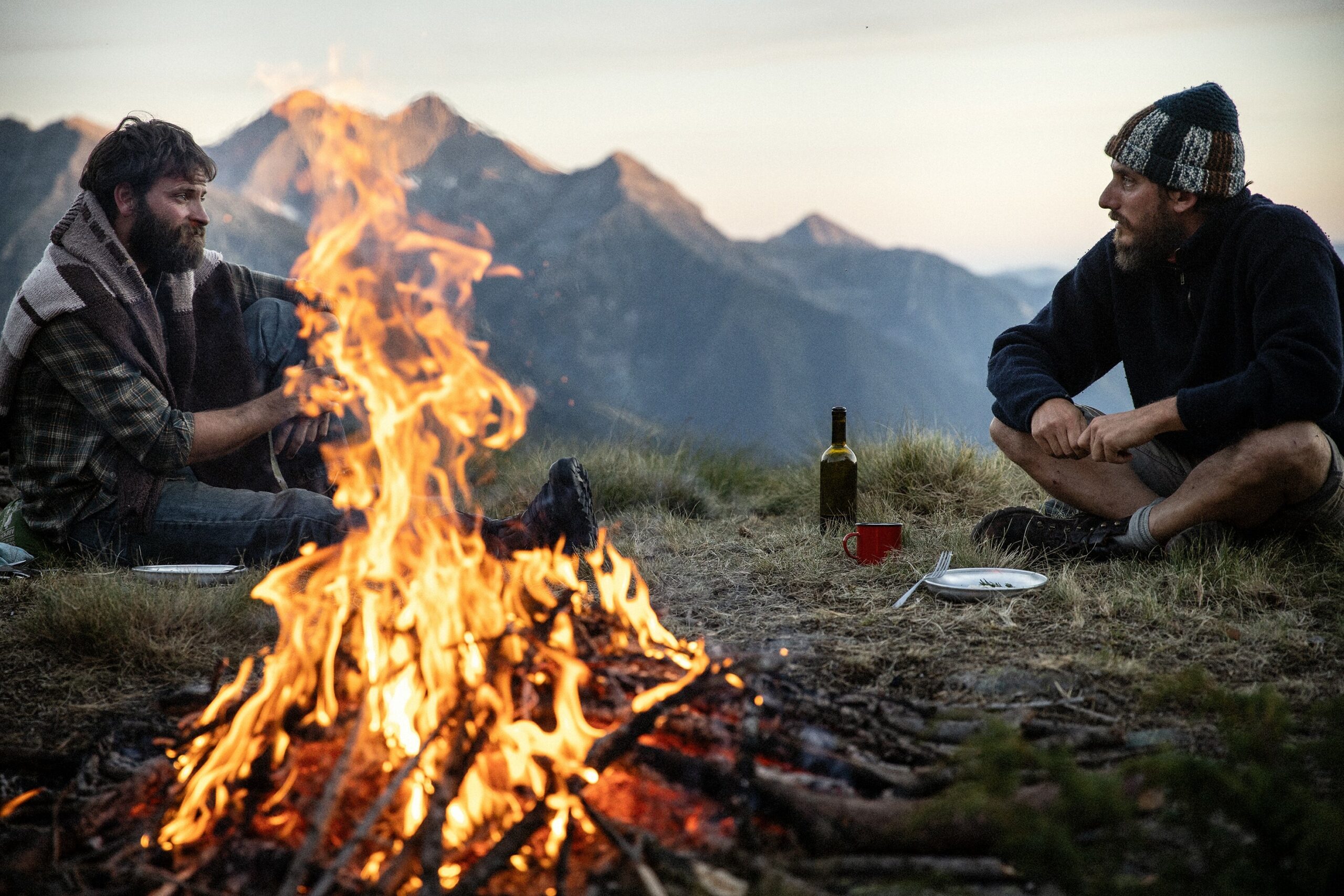 The Eight Mountains
The Eight MountainsEspecially Close and Tori and Lokita display an authentic realism, in which a rare voice is given to the emotional world of children, played by non-professional actors. The Eight Mountains begins with childhood too, with a slightly more nostalgic tone, but without romanticising the past. And in Rebel, it’s the younger brother who threatens to follow in his older brother’s destructive footsteps.
The importance of little things
The strength of the three award-winning films from the main competition is that they seem less concerned with winning over the viewer through an imposing cinematic narrative, and rather focus on captivating them through subtlety. Although the plot takes a dramatic turn in all three films, the storytelling style emphasises the importance of the little things. For example, the seasons play a role in both Close and The Eight Mountains. Anyone who wants to find common threads will have to look for poetry in the everyday – that’s how it goes.
It’s during the summer holidays that we get to know inseparable friends Léo and Rémi, in Close. They share each other’s fantasy world, sleep in each other’s beds, and run through dahlia fields at Léo’s parents’ horticultural business. When Léo increasingly distances himself from Rémi at their new secondary school due to peer pressure, Rémi desperately attacks his friend in the schoolyard. In the scene that follows, we see a combine harvester chopping the heads off red begonias in a field. The earth is turned over and the plants are uprooted. When Léo goes to ice hockey practice with his new, macho friends, we see him in a suit that magnifies his shoulders, and his face trapped behind the bars of his helmet. And so the dream about a shared future with Rémi evaporates.
In Tori and Lokita, when her asylum application is rejected, Lokita ends up in a remote shed where she is forced to tend to cannabis plants. Lokita is as illegal as the plantation’s crops, which are artificially raised to be monetised. They do not have their roots in solid ground and it is doubtful they will ever see the light of day.
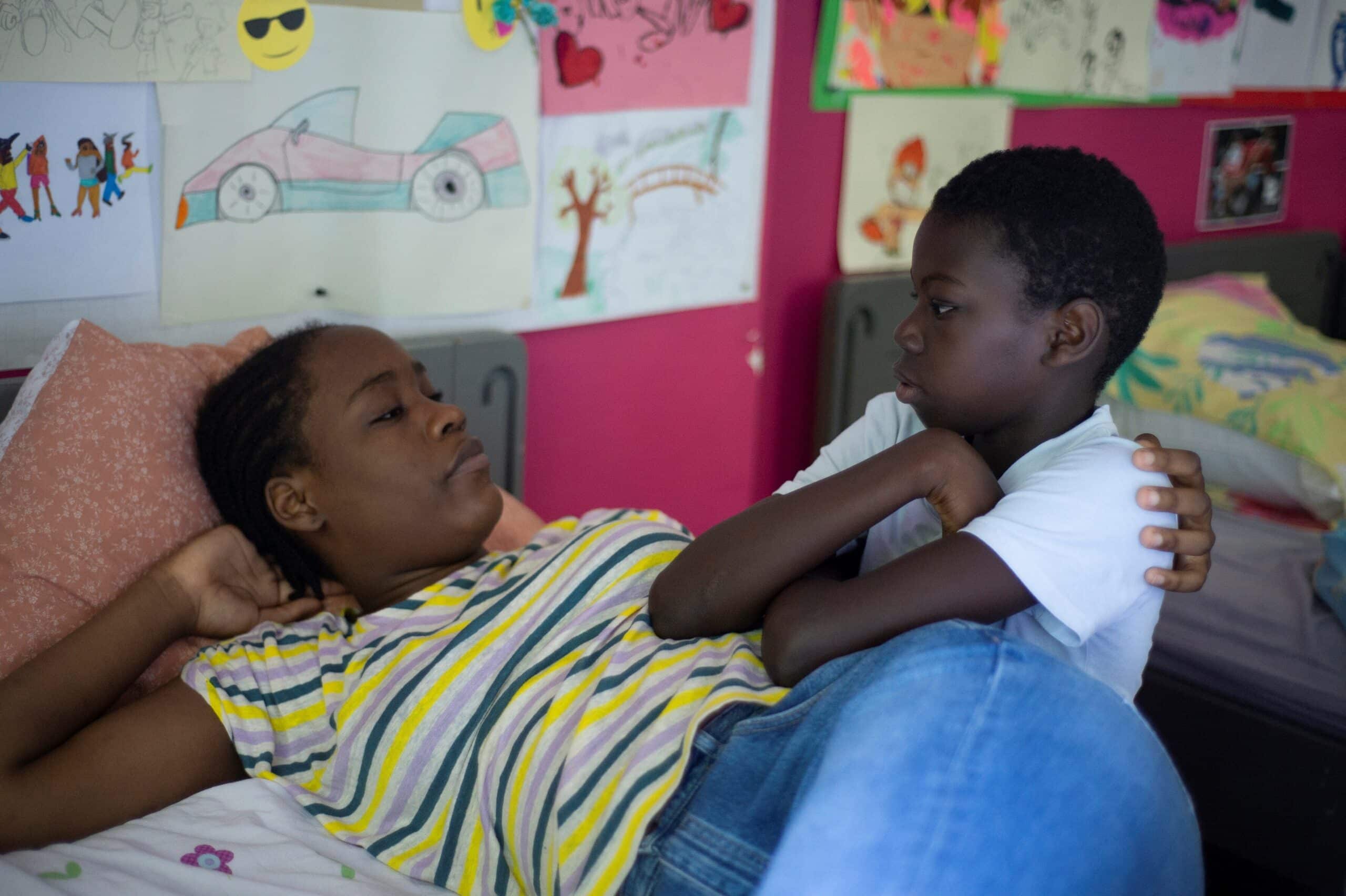 Tori and Lokita
Tori and LokitaIn The Eight Mountains, the glacier acts as a freezer for the memories of past winters. The boys, who seem to be polar opposites, build dams together, swim in a mountain lake and milk cows by hand. Years later, they get on a motorbike together and ride up a snowy slope and later still, they build a house on that same mountain, as a way of realising Pietro’s father’s lost dream. They share bread, cheese, and dried sausage.
Rebel is all about grand gestures, bold lyricism, which we see take shape in large-scale action sequences and rugged musical scenes. Brotherhood here has a strong sense of masculine pride – there are wheelies and burnouts with motorbikes, and survival in a war zone. Kamal raps about his inner struggle, while he dances with his group of friends through a Brussels eatery, in which the war in Aleppo that he cares so much about, spews like fire from the oven, with dramatic, disco-like lighting effects and a camera that literally turns the world on its head.
Like Close, Rebel and Tori and Lokita, The Eight Mountains
is about finding your place in the world. For the unyielding mountain man Bruno, it seems simple, “if you want something, you do it.” Pietro, the eternal doubter, seldom goes straight for his target. These four films do something similar – they capture the unspeakable in images so that we can understand it. They are all poetic too, whether it is the bold lyricism of Rebel or the nuance and subtlety of the other three films – the men in The Eight Mountains don’t usually waste words on their feelings. Except perhaps on one occasion, when they sit together on their mountain and Pietro says: “a fire, two fish, the mountains and you, may it last forever.”



